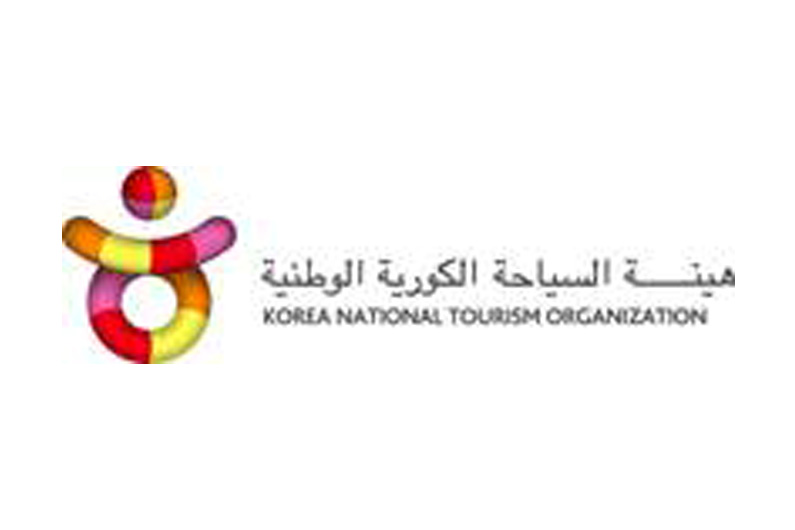
South Korea Aims to Attract 1 Million Muslim Tourists in 2016
V
isitors to the Arabian Travel Market (ATM) in Dubai will discover the perfect destination in South Korea when the event opens later this month. That is the aspiration of the Korea National Tourism Organization (KNTO), whose regional offices in Dubai will be hosting the Korean pavilion at the 2016 trade event. KNTO is using this year's Arabian Travel Market as the platform to announce its ambitions of establishing South Korea as the primary travel destination for Muslim visitors from across the globe. The organization has set itself the target of attracting one million Muslim tourists before the end of the year.
The exhibition will form part of a concerted effort by KNTO and the South Korean government to raise the profile of the nation as a premium travel and tourism destination within the Gulf States. Last month, the Korean Ministry of Culture, Sport and Tourism opened the region's first Korean Cultural Center (KCC) in Abu Dhabi, with the goal of strengthening cultural ties between the people of South Korea and the Emirates. The center provides visitors with experiences and opportunities to learn about some of the most popular aspects of Korean life, from language classes to taekwondo lessons, food preparation courses, and introductions to Korean art and music.
Visitors to the Korean ATM pavilion will be greeted with a chance to indulge in some of the delights of the nation's rich cultural heritage: from traditional, gourmet cuisine, to the ancient art of Korean calligraphy. Representatives from several organizations will be in attendance, including personnel from Korean Air; travel and tour operators; hotel, resort, and other suppliers. Guests will also be invited to live out their Olympic dreams within the pavilion's winter sports-themed photo zone, as the nation prepares for the upcoming PyeongChang Winter Olympics in 2018. Korean delegates say the trade fair provides an invaluable opportunity for visitors to learn more about the culture - as well as the business and leisure industries - of Asia's fourth largest economy.
South Korea has enjoyed impressive growth in the number of visitors arriving from the Middle East in recent years, and Gulf Cooperation Council (GCC) nations lead the way in experiencing the wonders of Korean culture first-hand. Kim Kwanghee, the Regional Director of the KNTO Dubai office, states that the drive is a reflection of the growing influence of Muslim customers within the tourism industry: “South Korea welcomed 800,000 Muslim tourists in 2015. One of its core projects this year is to focus on Halal tourism, since Muslims represent 25 percent of the world’s total population. Our aim is to attract 1 million Muslim tourists to South Korea in 2016”.
South Korea: home away from home for GCC nations
To date, KNTO has developed a package of innovative cultural initiatives for the tourism industry – and has found support among some of the country's most powerful corporate brands. With a renewed focus on attracting Muslim visitors, the Korean government has also set out plans to ensure that essential facilities are available to all visitors, from Masjids in every major city, to prayer rooms situated within theme parks, shopping malls and popular tourist destinations.
One of the flagship projects of KNTO has been the development of a new food classification system, which enables Muslim visitors to select a Halal restaurant with confidence. The availability of Halal food preparation services remains one of the primary concerns for many tourists when choosing a destination; The KNTO hopes that the new initiative will allow Korea to grow its burgeoning popularity within the Middle East and beyond, as a location that is attractive to tourists of the Islamic faith.
The new system evaluates the suitability of every restaurant on behalf of Halal guests, basing its results on criteria that includes ingredients, preparation methods, drinks, hygiene, and the dining environment. Within this framework, establishments can work towards providing a universal dining experience, where they will be classified within one of five categories: Halal certified, self-certified, Muslim-friendly, Muslims welcome, and pork-free dining. Official figures show that, currently, more than 140 restaurants across the nation have agreed to take part. Korean tourism will also stage a program of cross-cultural events within Korea, including a Halal food festival with renowned chefs, later in the year.
It is not the first time that South Korea has sought to entice private enterprise in its drive to bolster the domestic tourism industry, and similar partnerships with big business have proven fruitful in the past. An ongoing collaboration between Samsung Electronics, SK Telecom, and the Korea Tourism Organization has been providing tourists with free-to-use, rental Samsung Galaxy 5 smart phones. The handsets offer visitors free data access and voice calls for the duration of their stay, and provide free access to the KNTO application visitKorea. Tourists are able to access a number of resources through the app, including travel information and listings for attractions, accommodation, festivals and special offers at the touch of a button. Launched in March 2015, and branded Enjoy Mobile Korea For Free, the campaign is one of the first of its kind in the world. It is scheduled to continue throughout 2016.
South Korea is currently enjoying a booming leisure and tourism industry, with year-on-year growth in visitor numbers entering double figures during 2015. Initial figures suggested an equally healthy outlook for 2016. The nation boasts some of Asia's most popular travel destinations like Seoul, Busan, Jeju Island and gyeongju as well as several UNESCO World Heritage sites. South Korea is a nation whose rich cultural heritage, five thousand years of history, and breathtaking scenery holds a perennial appeal among international tourists. The country is absolutely a safe and clean destination with warm and friendly people. GCC nationals are provided a visa upon arrival for 30days and free of cost.



























